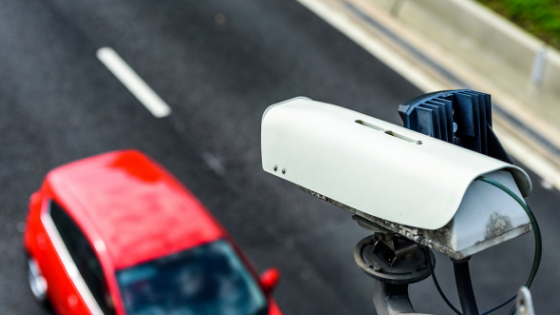If you’re driving too fast you have less time to react, which means the impact of a crash can be more forceful. The 70mph speed limit on motorways was introduced in 1965 because of the high number of collisions caused by drivers going as fast as they liked.
The 70mph limit is the front line of motorway safety, the importance of which is underlined by heavier penalties for speeding than on other roads. Maximum speeding fines, in general, can be up to £1,000. For speeding on a motorway, the figure more than doubles to £2,500.
If you get caught speeding on the motorway at more than 100mph you’ll most likely be banned from the roads, unless you can prove that losing your license would cause you exceptional hardship.
Speeding bands and income-related fines
Speeding is categorised by three bands – A (the least serious), B, and C (the worst) – and fines are based on the driver’s income.
Band A fines – exceeding the speed limit by up to 20mph on motorways – 25 per cent to 75 per cent of weekly income, plus three penalty points
Band B fines – 21mph to 30mph over the motorway speed limit – 75 per cent to 125 per cent of weekly income, plus four to six penalty points
Band C fines – driving at over 100mph – 125 per cent to 175 per cent of weekly income, plus six penalty points.
Driving bans for speeding
Band B offences can also result in a driving ban of seven to 28 days, and Band C offenders can lose their licence for up to 56 days.
If you’ve had your driving licence for less than two years, it can be revoked if you accumulate six or more penalty points – through a Band B or Band C speeding offence, for instance.
Is any leeway allowed with the motorway speed limit?
According to the letter of the law, the second you hit 71mph on a motorway, you’re breaking the speed limit. However, according to law and policing experts, speedometers aren’t always spot on, even in new cars. The National Police Chiefs’ Council (NPCC) has suggested motorists should be allowed a margin of error for the lowest levels of speeding, to take into account driver concentration and speedometer errors. In theory, this means you could be safe driving at up to79mph on a motorway. Bear in mind, though, this is only guidance, and actual enforcement of motorway speeding laws is at the discretion of individual police services.
Mitigating factors that may lessen the severity of a speeding penalty include:
- A genuine emergency.
- No previous motoring convictions.
- Establishing you are of “good character”.
- On the other hand, you may face tougher punishment if you’re caught speeding on a motorway in bad weather, towing another vehicle, or while carrying passengers.
In some circumstances, you could be offered a speed awareness course as an alternative to a fixed penalty notice (FPN). These day-long courses are designed to make motorists more aware of the consequences of speeding.
Speeding and smart motorways
Smart motorways – sections that employ traffic management technology to reduce congestion – have variable speed limits and more cameras, which increase the risk of being caught speeding. The cameras on smart motorways that detect breaches of variable speed limits can still catch drivers travelling above the 70mph limit even when a variable speed restriction isn’t in place. As Highways England – formerly the Highways Agency – points out: “If no special speed limit is displayed, the national speed limit applies.”
Is it always safe to drive at the motorway speed limit?
Motorways are statistically our safest roads, with fewer collisions per mile travelled. When motorway crashes do happen, though, they’re more likely result in death because of the high speeds involved.
It’s important to remember that speed limits on motorways and smart motorways indicate the maximum speed you should be driving if safe to do so. When driving during bad weather, for instance, the speed limit could become dangerous. Whatever the weather, it’s essential to read the road ahead and adapt your speed accordingly.
You can avoid the temptation to speed on motorways – and other roads – by allowing ample time for your journey, by planning properly before you set off. It’s also advisable not to pin your hopes on expecting a margin of error and the police giving you the benefit of the doubt by showing leniency in cases of low-level speeding. If you keep below the speed limit, you’ll never get caught speeding on the motorway – it’s as simple as that.








